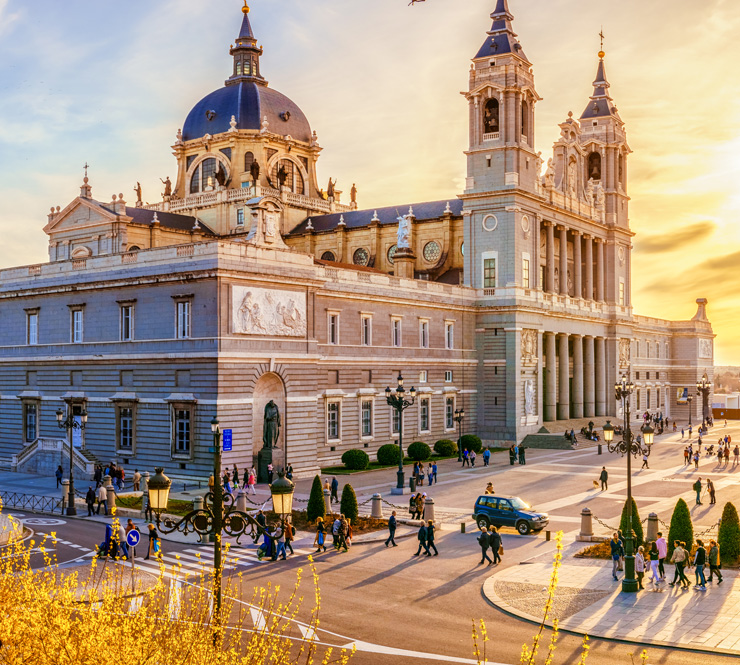COURSE DETAIL
This course aims to reflect on ideology, the construction of identities, and the representations of facts and languages that emerge in hegemonic neoliberal discourses (focusing on multiple areas of society: health, culture, interpersonal relationships, labor relations, digital communications, etc.) It also seeks to develop critical intercultural competence, focusing on a key question: what is culture? Clichés, cultural misunderstandings, stereotypes, and prejudices surrounding identities are examined. This course is taught in Spanish and a minimum level of B2 Spanish language background is required.
COURSE DETAIL
This course equips students with the knowledge and skills needed to foster socio-emotional development, enhance teamwork, and embrace digital competence in educational settings. Through a blend of theory, practical application, and collaborative exercises, students gain a comprehensive understanding of how these elements interplay to create an enriched learning experience. The course has three main topics. One is to help students to become an advocate of emotional education, understanding and regulating emotions, and providing emotional support and resilience within educational organizations. Students learn skills in emotional expression, understanding, and regulation. The second topic is the importance of teamwork and collaborative work, focusing on the dynamization of groups, group observation, and essential social skills in educational contexts. Through networking, communication, and the use of digital tools, students learn to work effectively within educational teams. Lastly, students develop the skills to master digital technologies in education, conceptualizing digital competence, and utilizing digital resources for teaching, learning, and professional development. The course explores digital resources for teaching and learning, digital content, evaluation and feedback, and professional development with digital technologies.
COURSE DETAIL
This course examines the rich and complex history of Catalonia, from the Middle Ages to the present day. Students explore the formation and evolution of Catalonia, beginning with its medieval origins and the development of a distinct Catalan identity. Key historical milestones, such as the War of the Spanish Succession, the rise of Catalan nationalism, and the impact of the Spanish Civil War, are analyzed to understand their enduring influence on contemporary Catalan society and politics.
Additional topics include the relationship between Catalonia and the broader Spanish state, significant political movements and cultural developments, including the Renaixença (Catalan Renaissance), the establishment of the Generalitat (Catalan Government), and the recent push for independence. Through a multidisciplinary approach, incorporating history, political science, and cultural studies, students gain a comprehensive understanding of Catalonia's socio-political landscape. The course also addresses contemporary issues such as language policy, regional autonomy, and the economic challenges facing Catalonia within the European Union.
COURSE DETAIL
This course covers 1000-1500 in premodern Spain. Through a selection of poems, chronicles, and legal works, students examine the ideological and social development of the peninsula through the eyes of those who witnessed it. The aim of this approach is to better grasp the interplay between ideas and writing from multiple perspectives. The selected texts demonstrate the depiction and role of women, Muslims, Jews, conversos (recent Jewish converts to Christianity), nobles, knights, and kings during the time period, giving a better insight into the way written media shaped the views and ideals of those who lived then, as well as the current understanding of the era. Themes include heroes and villains; the description of women; marginalized groups (e.g., Muslims); and the power of entertainment as a moral, persuasive, and educational tool. Through these thematic axes, students understand the development of history and ideas, as well as the diversity of perspectives and people from the Middle Ages.
COURSE DETAIL
This course explores the fundamental economic concepts necessary to understand human societies as an open system and systems that require the constant flow of energy and materials, while also generating waste and about social metabolism. The course highlights the biophysical processes that underpin economies, and the critical role natural resources play in sustaining economic activity. Additionally, students analyze how institutional frameworks create or remove incentives for the consumption and conservation of energy and materials. Students also learn how various policy approaches tackle today’s pressing environmental issues, and learn the tools to critically assess sustainable practices and potential solutions for a more balanced relationship between the economy and the environment.
COURSE DETAIL
This course examines the major issues related to brands, which can be products, services or institutions. It covers topics such as the impact of technological and digital changes, modern marketing and communication terminology, the intercultural strategies for global branding, and how to engage with consumer groups. The course examines key aspects of popular culture, such as mass media advertising, transmedia advertising, social media trends, and the cultural background of a country. It is divided into two sections. The first section focuses on the fundamental concepts of branding, marketing, advertising, and popular culture studies. The second section focuses on different topics and case studies, including the Barcelona brand before and after the Olympics, the Madrid Olympics and World Cup candidacy case. It also looks at FC Barcelona as a Spanish soccer ambassador, Spanish fashion design with Zara and Custo Barcelona, the new cooking and Mediterranean diet era, and new professional representatives in brands such as influencers and new storytelling.
COURSE DETAIL
This course provides a general overview of practical applications of fertility control for ethical management of wildlife and other free-living animals. Lectures and practical sessions focus on case studies to illustrate the many aspects of wildlife fertility control applications. Students learn about products available, methods to deliver contraceptives and evaluate their impact on reproduction and welfare of individuals and populations of free-living animals. Through a mixture of lectures, informal discussion groups, laboratory and field practical sessions, students learn about the challenges and opportunities offered by fertility control and complete a proposal for a project on wildlife fertility control. The course addresses the rising demand for innovative conservation approaches and prepares students to balance ecological and economic needs with animal welfare.
Pagination
- Previous page
- Page 2
- Next page



